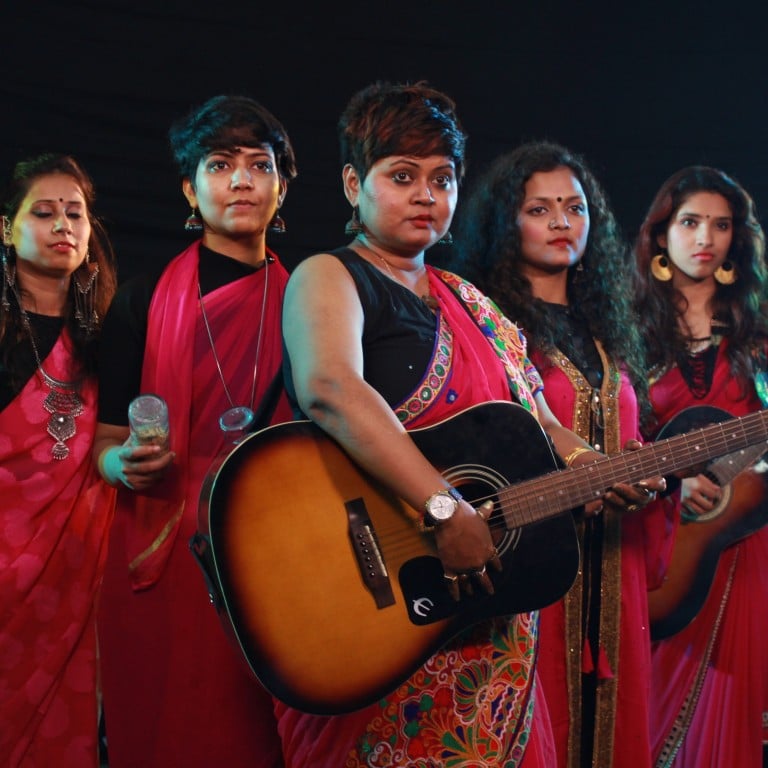
India’s first female rock band sings for gender equality and empowerment
- Meri Zindagi’s songs tackle major social issues that women regularly face in India, such as domestic violence, female infanticide and child marriage
- Band members draw inspiration from the everyday lives and struggles of women
Five women wearing pink saris walk onto the floodlit stage to be greeted by loud cheers from the audience. Accompanied by electric guitar, synthesiser and drums, the lead singer belts out the lyrics of a single from their latest album. The tune is catchy, the beat is foot-tapping and the lyrics are hard-hitting.
Mother, don’t just marry me off / Don’t send me away tied to a groom / Let me study and become somebody / Let me be the one to colour your dreams.
This is India’s first female mission rock band, Meri Zindagi, which means “My Life” in Hindi. Unlike other Indian girl bands, they do not perform covers of popular movie songs. Meri Zindagi’s mission is to use music as a tool to raise awareness about, and combat, gender inequality. Their original compositions tackle major social issues that women face – domestic violence, female infanticide and child marriage.
“We don’t perform only to entertain. We perform to create awareness and sensitise people on the issues that women encounter and to empower girls to follow their dreams,” says 39-year-old Jaya Tiwari, the band’s founder, lyricist and lead singer.
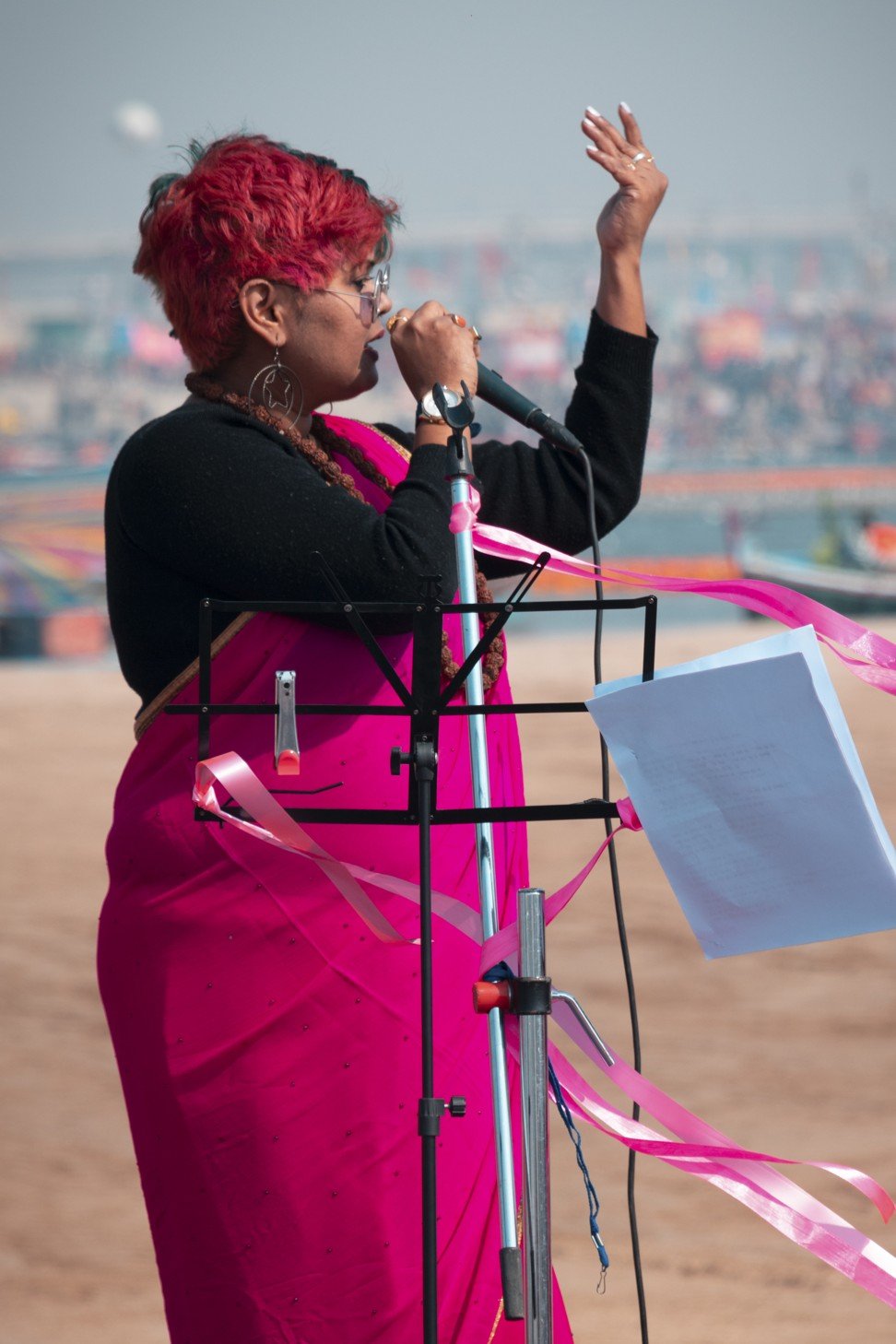
Tiwari grew up in Lucknow, the capital of the northern Indian state of Uttar Pradesh, where Meri Zindagi is based. She was always troubled by the entrenched gender bias against women in society. Nowhere was this more evident than at the orphanage near her home, where boys were adopted within days while orphan girls seldom had any takers.
The older children at the orphanage were mainly girls who had stayed on. Tiwari, a radio disc jockey at the time with a doctorate in music, hit upon the idea of using music to empower these girls.
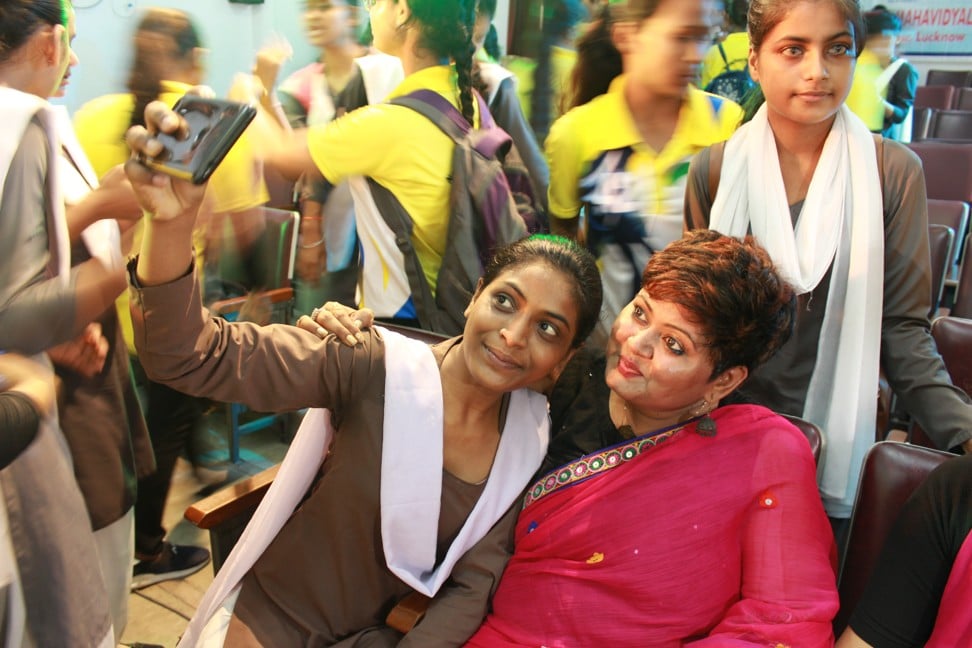
That led her to the idea of starting an all-women band that would use music as a tool to tackle gender inequality. Tiwari’s search for like-minded women took her almost two years.
“There was opposition from some of the girls’ parents and their families, while others were worried about the viability of the band, given it was for a social cause,” Tiwari recalls. “But we got there in the end and I am glad we persisted despite all the challenges.”
Also glad are the legion of fans the band has entertained over the past eight years they have been performing. The members of Meri Zindagi have composed more than 60 songs, released two albums and numerous music videos, and performed more than 150 live shows across India.
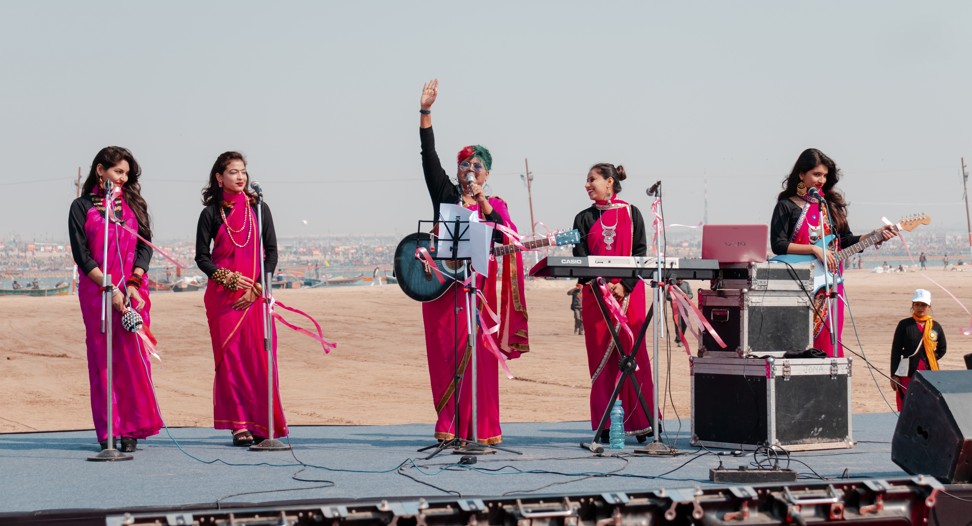
They have done shows on national television and radio, including BBC Radio, and conducted special awareness programmes for government organisations and NGOs. In 2018 the band performed at the Kumbh Mela, a major Hindu festival estimated to be attended by almost 100 million people.
Niharika Dubey, who plays the keyboard, was the first to join Tiwari in the band.
“I knew Jaya but that did not give me an advantage. I had to audition, like everyone else,” Dubey, 29, recalls.
Soon they were joined by Poorvi Malviya, 23, on guitar and Saubhagya Dixit, 20, as a vocalist and on percussion, and finally by Anamika Jhunjhunwala, 15, on drums. A sixth band member who doesn’t always perform, Parul Awasthi, 29, is a guitarist.
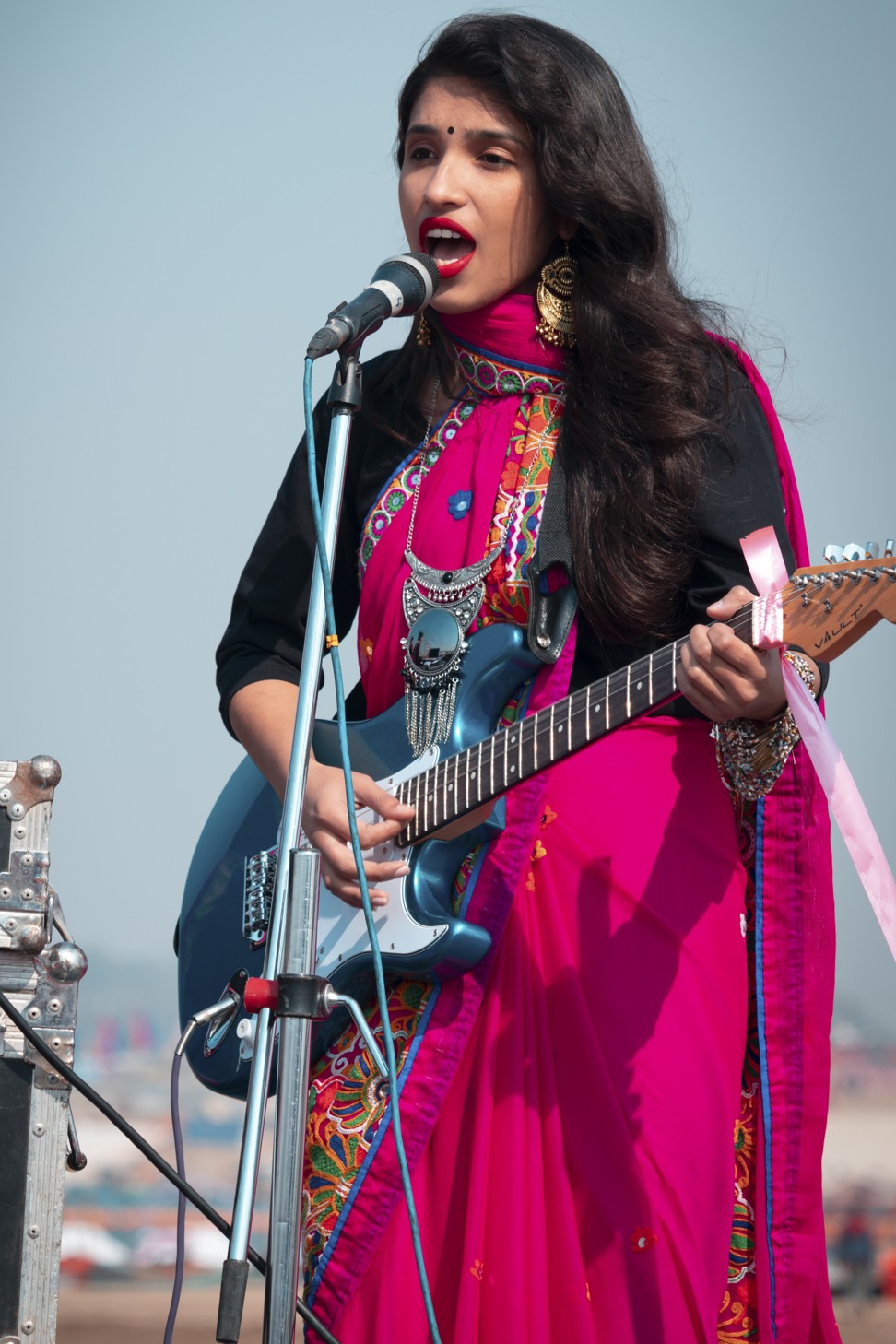
All the band members double up with production roles as well.
“Poorvi takes care of travel and logistics, Saubhayga is our in-house fashion designer, and Niharika is the band manager. Anamika is in high school and so she has her hands full with her studies,” Tiwari says.
“Our journey has not been easy. When we started, we didn’t have any instruments besides a guitar and we could not afford to buy any. We turned to the kitchen for inspiration and picked up anything we could find – metal spoons, bowls, glasses, plates, even tongs, and started using them as musical instruments. They came to symbolise that household chores are a women’s strength and not her weakness,” Tiwari says with pride.
Another challenge for the band was getting together to practise.
“We live in different corners of the city and commuting long distances was hard. We would jam early in the mornings from 5am to 7am, as a few band members were students and needed to get to college. We would be half asleep when we started, but the energy of the rehearsal woke us up,” says Malviya, who is now a software engineer.

“We are all professional working women. We balance our careers, families and being a part of the band. Meri Zindagi is our passion,” says Tiwari, who heads a community radio station and has a 14-year-old son.
At times they practised in public parks.
“We are from middle-class families. Often at our homes there wouldn’t be enough space to practise and we didn’t want to disturb our families,” says Dixit, who works for a software company. “People on their morning walks would smile at us and some would buy us a cup of tea too.”
After a long struggle, the band finally started to get noticed and some of their songs went viral on social media. Tiwari says all her songs draw inspiration from the everyday lives of women.
“For a woman to be successful in any field is not easy. Every day is a battle. The whistle of the pressure cooker in the kitchen is a call to fulfil your dreams, to get ready and face the world head-on,” she says.
The band’s song Dreaming ke pressure cooker ki seeti ko bajne do encourages girls to do more than just stay in the kitchen. The song speaks to the lives of millions of women in India.
We are simple, ordinary women. We become extraordinary when we tell our stories through songs. Our music is a reflection of the lives of millions of women
Lyrics of one of their hit singles, Save the Girl Child, go “Desh bachana hai to, betiyan bacha lo”, which means “if you want to save your country, save your daughters”.
Release of their heart-rending song about female infanticide, Teri galiyon main na aayenge kabhi, is raat ke baad, which means “mother we won’t come back to you after tonight”, led to invitations for them to perform from the Mahila Samakhya, a government body working for women’s empowerment, Unicef, BBC Media Action, and NGOs such as Breakthrough and WaterAid India.
Although the band’s main focus is on women-centric issues, they have not limited themselves to the subject. Meri Zingagi embarked on an anti-smoking drive in 2018. Their song No Sutta, which means “No Smoking”, was part of a year-long campaign run by the Cancer Aid Society.
Lyrics of the song, ‘Sutta maar maar ke, kaleja taar taar hai, gali ke har nukkad pe phir kyun suttee ka prachaar hai”, challenge smokers. They ask why, if they know that the habit can cost them their lives, do they still smoke? The single went viral on Facebook and YouTube.
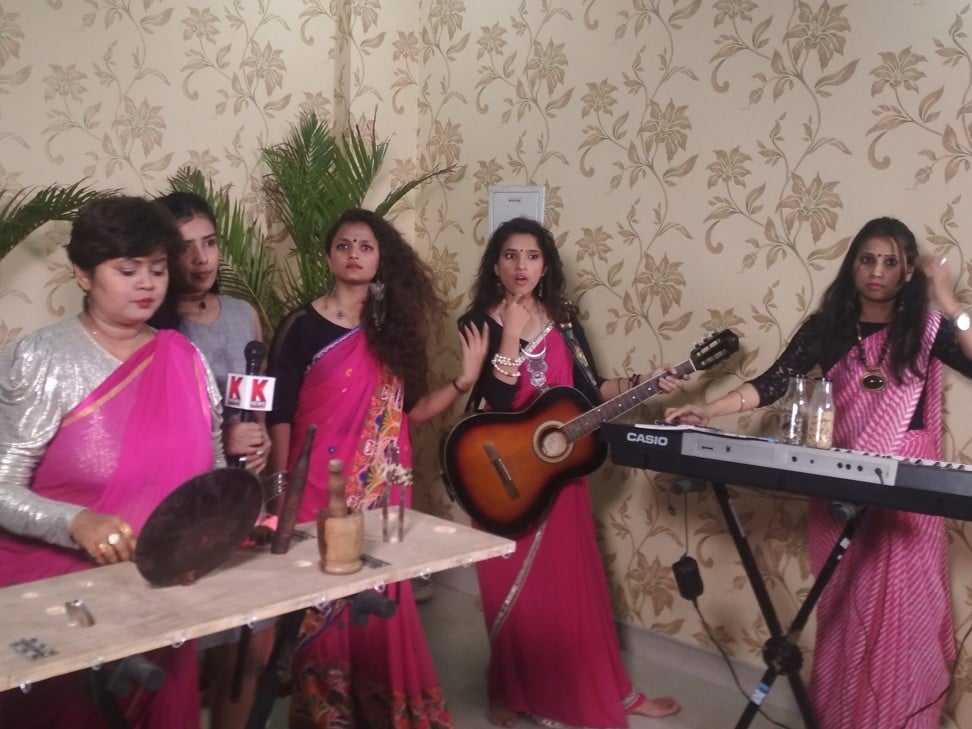
Their latest campaigns, #humkaaleyhain and #maaki, are also making waves. Humkaaleyhein (which means “we are black”) tackles the racism that girls face based on their skin colour. #maaki is a campaign against the use of derogatory slang directed at women.
The band is a philanthropic endeavour. They donate their earnings to help pay for the education of underprivileged girls in Uttar Pradesh, and are in the process of launching an online radio station to provide women from across the country a platform through which to share their struggles.
Tiwari says that despite focusing on women, they have a substantial male following. “The issues that we raise affect not just women, but men as well. At the end of the day, gender equality is not about shifting oppression from one group to the other. It is about eliminating it,” says Tiwari, whose family has been supportive of her initiatives.
Dubey says: “Meri Zindagi is not just a band but a medium for girls to fulfil their dreams. The band has given me a new lease of life. It has given me confidence, courage and faith.”
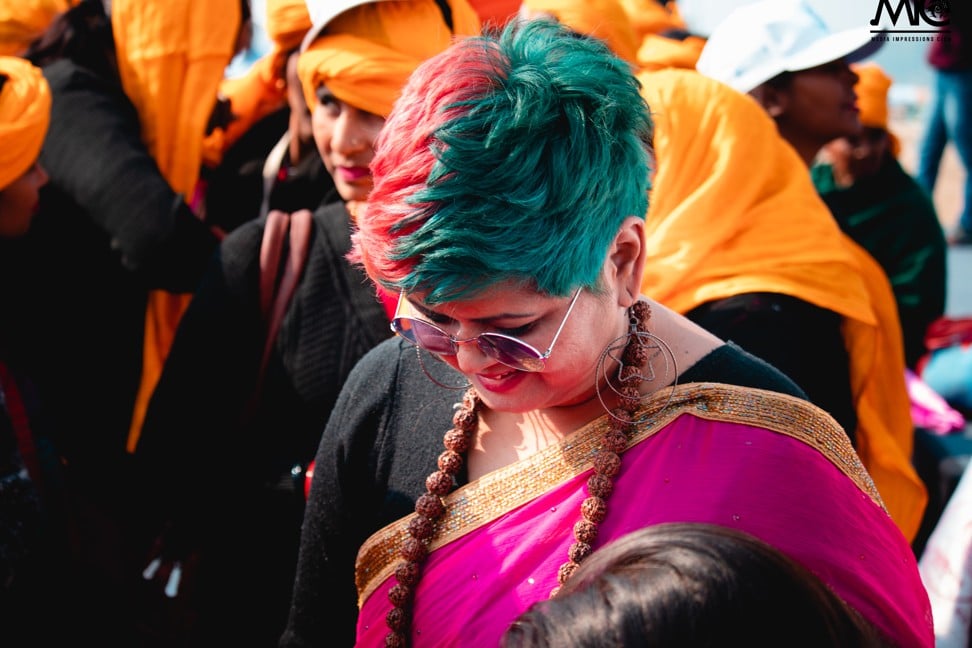
Tiwari writes the lyrics and composes the song while working in the kitchen, chopping vegetables or rolling chapattis.
“We are simple, ordinary women. We become extraordinary when we tell our stories through songs. Our music is a reflection of the lives of millions of women. And when we perform on stage, the girls in the audience relate to us because they feel they are listening to their own stories,” she says.

